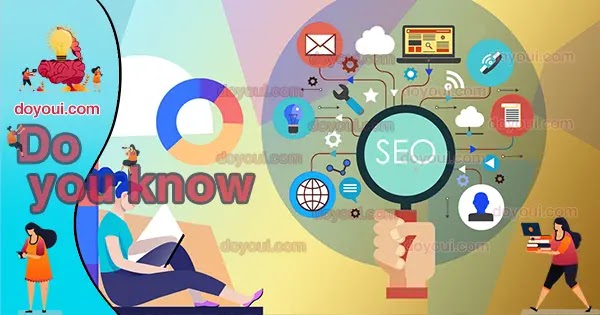When it comes to writing websites, what is good for search engines is often not good marketing.
why? Because almost inevitably, when you write to please the search engines, you're writing about the features of your service. But you should write about the benefits to your customers.
There are two types of writing for people and search engine bots:
This is a fundamental issue and you should take it into account at every stage of creating copy for your website. You have to strike a balance between writing for people and writing for search engine bots. The balance will be subtly different for each business. You may need to keep experimenting. It all really depends on how important search engine traffic is to your organization. First, a quick summary of the core issue of search engine copy.
What do search engine rankings mean?
Search Engine Optimization (often called SEO) means making sure that your website ranks high with Google and other search engines. Google wants to provide people with correct, relevant information. It does this by reading the copy on your website.
If certain words are used frequently, Google will calculate that the site is closely related to that "keyword". When people search for that keyword, Google marks your site as worthy of attention.
Therefore, when a copywriter creates his website, he tries to use the word "copywriter" as often as possible.
It's not a good idea to just list the word either. It must be in real sentences. Moreover, it is best to use the keyword at or near the beginning of the sentence. You also need the keyword in the headline, in the first paragraph, and whenever possible after that.
So, you end up writing about you, the copywriter, and the copywriter you can offer. Your service features.
Where are your customers in all of this? Any good copywriter, even a complete beginner, knows that you need to turn the features of your service into benefits for the customer. It's just good marketing.
The copywriter must explain how he can increase sales, attract customers, save the customer money, provide exceptional service, etc.
The same thing will likely happen regardless of your business. If you are a graphic designer, a client may come to you because they want you to create a professional image for their business.
But they are not looking for a "professional image", "design effect" or "creativity". They are looking for a Graphic Designer. So your copy should continue to mention "graphic designer", and "graphic designer".
What's the solution? If you know an easy way, please share the secret. For most organizations and companies, the answer will be balanced. You need to know how important Google searches are to you. If the answer is "not much" because your visitors come from other sources - perhaps through a direct mail campaign, online ad clicks, or because they are regular customers and you've bookmarked yourself - then your copy should be more weighted towards good marketing, with less emphasis on search engine bots.
But if Google searches are everything for your organization, you'll have to play the game by its rules.
A carefully written copy can at least try to play both games. You can keep using keywords, but always keep in mind that you need to refocus on the benefits to your customer.
It's not easy, and it can be a tedious process. But that, at its heart, is what good web writing should be: to monitor and please search engines when necessary, always giving them back people, customers, and benefits. Because that's good marketing.
What is search engine marketing?
Where SEM stands for Search Engine Marketing, it is the most targeted, fastest, most dynamic, measurable, and cost-effective marketing strategy that can give your business the ability to reach potential customers all over the world.
Search engine marketing or search engine marketing is all about making sure that your website appears in the top 20 search results every time potential customers search for any products and/or services you offer on any of the major search engines including Google, Yahoo, and MSN.
So search engine marketing is an alternative to traditional marketing such as commercials, brochures, and print ads.
SEM types:
There are currently two types of search engine marketing. They are:
- Natural search engine listings such as those returned in digital form in major search engines such as Yahoo, Google, and MSN.
- Listings of paid search engines such as those returned in sponsored areas from search results on those same engines and others belonging to their network.
What are natural listings for search engines?
There are two types of search engine listings. Normal and paid. Natural rolls are rolls that have not been paid for. They are determined by search engine algorithms to find, sort, and rank pages based on their relevance. Since natural listings are considered more "accurate" by researchers, getting natural listings is usually better than getting paid listings.
What are paid search engine listings?
Paid listings are usually classified in a separate section as sponsored listings. Paid search engines are search engines that return based on keywords for auction-type bids. These listings are displayed in sponsored areas of the search results and are paid for on a per-click basis.
Therefore, search engine marketing is an essential part of the business and should not be underestimated. Search engine marketing is responsible for millions of consumer transactions per day.
We wish you a happy life and successful marketing!
----
